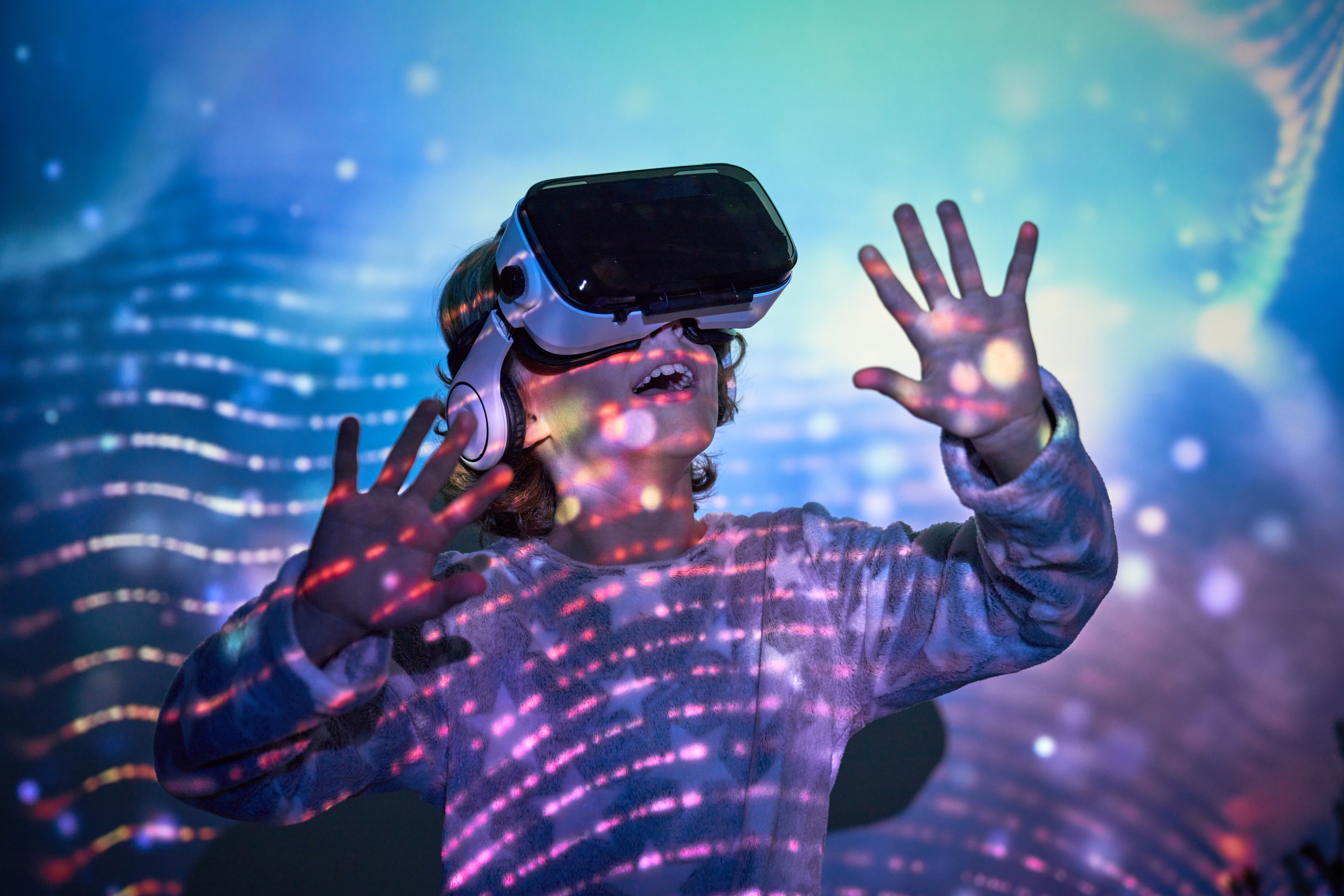Key Highlights:
Background:
- Critically ill patients in the Pediatric Intensive Care Unit (PICU)are limited in their ability to engage in developmentally typical activity and may spend their days as passive observers of screens, such as television.
- Long-term hospitalization, especially with minimal interpersonal engagement, is associated with risk of delirium and delayed recovery.
Study Aims:
- This study explores the emotional and physiological responses of critically ill children experiencing VR.
- The first objective was to explore whether children engaged in and enjoyed the VR experience through in-moment behavioral coding and parent-and participant surveys. This includes whether there were any adverse effects of the experience.
- The second objective was to assess patterns of physiological responses by measuring changes in HRV associated with the VR experience.
Methods:
- Each participant selected a set of curated, developmentally appropriate VR experiences.
- The researcher documented the content of child comments, the number of smiles and laughs while using VR, and an engagement score.
- Other measures included a questionnaire about the VR experience from both the parents and participants and heart rate variability data.
Results and Conclusion:
- Children demonstrated high engagement, and both children and parents reported that they enjoyed the experience.
- Longer periods of engagement were associated with higher child- and parent-reports of enjoyment and calming.
- Results showed brief physiologic changes in HRVi measurements for participants while using VR, which were not sustained in the period after.
- VR is a tool that can be used to augment the hospital environment, and further research is required to understand the potential impact on patient physiology and clinical outcomes.




